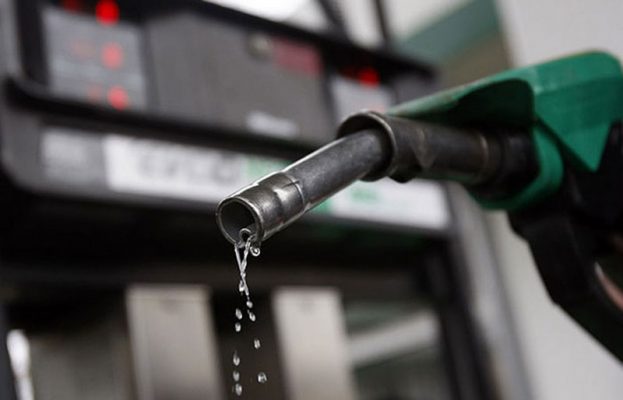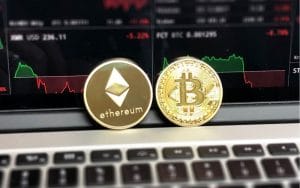A fresh round of hostilities may have erupted between major oil marketers and the Dangote petroleum refinery as both parties jostle for dominance in Nigeria’s downstream oil sector, Saturday PUNCH reports.
This follows recent revelations by the President of the Dangote Group, Alhaji Aliko Dangote, who declared that his $20bn refinery is still “fighting for survival” amid what he described as sabotage by entrenched interests and oil sector cabals resisting local refining.
He stated at a recent event that the battle with entrenched oil cabals — one that began even before the refinery commenced full operations — was still ongoing, but expressed confidence that he would ultimately prevail in securing the refinery’s future.
Findings revealed that the business mogul’s remarks were triggered by the continued importation of petrol and the reluctance of major marketers to buy in bulk from the refinery, despite its increased production capacity and improved output of petroleum products.
This comes against the backdrop that marketers of petroleum products utilising scarce foreign exchange brought in a total of 2.57 billion litres of Premium Motor Spirit, also known as petrol, in 70 days between March 1 and May 9, 2025.
Saturday PUNCH analysis using an April 2025 midstream and downstream document and latest tanker vessel movement obtained from Blue Sea Maritime, showed that the marketers, who opted not to patronise Dangote, imported 755.7 million litres of petrol in March at an average of 25.19 million daily.
In April alone, petrol imports surged to approximately 1.47 billion litres, indicating sustained reliance on foreign supply.
Within just the first 10 days of May, an additional 331.33 million litres were brought into the country, underscoring the continued high demand met through importation despite ramped-up local production.
With an average of N948 per litre, importers may have spent N2.42tn on PMS imports. This is in addition to N4.51tn spent on the same purpose between October 2024 and February 2025.
Dangote had, since last year, raised the alarm that some mafias were sabotaging his refinery.
He specifically mentioned that some international oil companies were sabotaging his investment by denying the facility adequate crude supply despite the domestic crude supply obligation.
Dangote had alleged that the Nigerian Midstream and Downstream Petroleum Regulatory Authority was issuing licences to marketers to import substandard petroleum products into the country.
To fight this, the facility approached a federal high court to stop the regulatory authority from issuing import licences to marketers.
The court is yet to rule on the request.
At a point last year, Dangote said he regretted building the refinery, saying the mafias in the oil and gas sector were stronger than those of drugs.
“In a system where, for 35 years, people are used to counting good money, and all of a sudden, they see that the days of counting that money have come to an end, you don’t expect them to pray for you. Of course, you expect them to fight back.
“And I think that is the process that we’re now really going through. But the truth is that, yes, the country, the sub-region, and also the continent of sub-Saharan Africa, need this refinery. So, you expect them to fight through non-supply of crude, non-purchase of the product, but I think it’s all temporary. We’ll get there,” Dangote stated.
But giving an update at an investor forum in Lagos last week, Dangote said the fight for the survival of his $20bn refinery was still on.
He pointed out that some individuals who “for a very, very long time” have “made a lot of money from” government-subsidised oil imports into Nigeria, were the ones trying to sabotage the 650,000 barrels per day oil refinery situated in Lekki, Lagos.
“We are fighting, and the fight is not yet finished. But I have been fighting all my life, and I am ready and 100 per cent sure I will win at the end of the day,” he stated.
He later clarified that those who were still fighting against the survival of his refinery were major marketers and traders, and not the Nigerian National Petroleum Company Limited leadership.
However, despite the business mogul’s claims, data suggests that petrol imports have significantly declined in recent months.
Latest NMDPRA data indicates that daily imports of Premium Motor Spirit fell from 44.6 million litres in August 2024 to 14.7 million litres as of April 13, 2025 — representing a sharp drop of about 30 million litres or 67 per cent.
This reduction is attributed to improved supply from the Dangote refinery, Port Harcourt refinery and modular refineries.
In a major shift, the NNPCL, once a dominant importer, has also scaled back its foreign purchases, opting instead to source products directly from the refinery.
However, the National President of the Petroleum Products Retail Outlet Owners Association of Nigeria, Billy Gillis-Harry, in an earlier interview, said there should be no form of discord in the downstream sector over the source of petroleum product purchase.
According to him, Dangote should be allowed to refine its products with the naira-for-crude deal while importers and other traders should be given a level playing field to operate.
Gillis-Harry noted that there should be facts to back up all claims, saying there will be competition in any business, pleading, however, that it should be healthy.
“I just want all players to do their business without any fight,” the PETROAN boss said.
The National Publicity Officer of the Independent Petroleum Marketers Association of Nigeria, Chinedu Ukadike, said the fight is just the usual competition in any business, especially when a product is doing better than others in the market.
He said, “Well, this is business. Competition abounds. There is no businessman whom people will not fight if he is doing well, especially when it is only your goods that are being produced, and the others are not being patronised because of the price. So, it is evident that every businessman wants to survive. It’s not an issue. What we can do is encourage him.
“We independent marketers are happy with him for his price slashes, although sometimes it’s against our business strategy and projections. But that is part of the business; it is profit and loss.
“You know the factor of demand and supply matter determines the market. So, if he’s talking about how people want to sabotage him, he has told us that he’s ready to fight the oil cabals, and he is in this business to ensure that Nigerians don’t suffer. So, we encourage him not to lose hope, and we independent marketers support him in all ramifications.”
The Depot and Petroleum Products Marketers Association of Nigeria, however, raised the alarm over what it described as an emerging monopoly in the downstream petroleum sector, warning that the dominance of the Dangote refinery could destabilise the market if not carefully managed.
In an interview with TVC on Friday, the Executive Secretary of DAPPMAN, Mr Olufemi Adewole, dismissed allegations of a “cabal” in the sector but admitted the existence of vested interests among private depot owners who had invested billions of naira over the years to keep fuel flowing to Nigerians.
He said, “There is no cabal in the midstream and downstream operations as far as I am concerned, because, going by the English definition of the word cabal, it’s a negative, subversive thing. There is no cabal. But I can tell you that we have vested interests.
“My principals have vested interests in the sector. So, if they have invested over these years, billions of naira, and they have bridged the gap, even before Dangote, they were there when nobody was there to bridge the gap and ensure Nigerians get fuel. Definitely, they should have commensurate returns on their investment. So, on that, I would say there is no cabal, but there are vested interests.”
Speaking further, Adewole stressed that the Dangote Refinery, despite its massive 650,000-barrel capacity, had not been able to meet even the current reduced local consumption needs.
He argued that private depot owners continued to bear the bulk of the fuel distribution burden across the country.
According to him, stopping the importation of fuel at this stage would be “chaotic” and “dangerous,” adding that a phased strategy was more viable once multiple domestic refineries were onstream.
Adewole also expressed deep concern over what he called a “clear and present danger” of monopoly, noting that Dangote’s scale gave it excessive influence over pricing and supply channels.
“You will recall that Dangote recently took the Nigerian Midstream Downstream Petroleum Regulatory Authority and a few other marketers to court. This tells you their mindset, and what they were challenging is actually the authority of the regulator, which is enshrined in the PIA, to release import licenses for marketers to import fuel. So, it gives you a picture into their mindset.
“So, the fear of monopoly is real, and we are working with other stakeholders to make sure this is not realised, and we are working with the regulators, encouraging them to do their work so that this is curtailed.”
On direct dealings with the refinery, Adewole said DAPPMAN members were not getting a fair opportunity to purchase products, alleging that the refinery preferred to sell only to selected marketers via gantry supplies, rather than bulk depot loading.
“Dangote Refinery prefers a selective approach. We have depots in Calabar, Port Harcourt and other coastal cities ready to pick in bulk — 10,000, 15,000, even 20,000 metric tons — but access to load vessels is restricted.”
He also disclosed that price slashes after cargoes had left the gantry had left many marketers absorbing losses quietly, just to stay afloat.
“We didn’t come out to make noise. But we’ve been bearing the brunt, just to remain sustainable and profitable.”
Addressing the issue of pump pricing, Adewole explained that the cost of petroleum products was built on multiple layers: from crude price to refinery margins, logistics, and retail costs — highlighting the impact of operational inefficiencies and high financing costs on final prices.
“Depot operations are tough. Equipment is ageing, and capital costs are high. To import 20,000 metric tons, a marketer needs an exposure of over N20 billion. Most of this is bank-funded at high interest rates,” he concluded.



